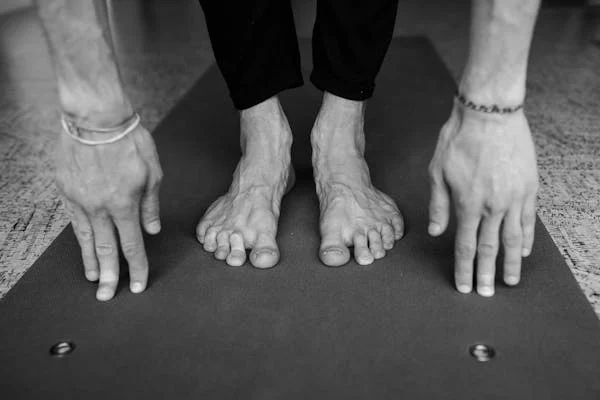Table of Contents
Introduction
What is Holistic Health?
Holistic health is a comprehensive approach to well-being that recognizes the connection between mind, body, and spirit. It goes beyond the absence of illness, focusing instead on balance, wellness, and the natural healing potential of the body.
Rather than simply addressing symptoms of illness, holistic health seeks to understand the root causes and provide a well-rounded, preventive strategy for living a long, healthy life.
In this modern age, with its fast-paced lifestyle, stress, and reliance on traditional medical practices, many people are looking for more natural ways to achieve wellness. T
hese trained professionals use a variety of natural methods to promote overall wellness. This blog will provide an in-depth look at the role of holistic health practitioners and how their practices, including holistic nutrition, can lead to greater well-being and healing.
The Importance of Holistic Health Practitioners
Holistic health practitioners play a vital role in helping people heal by addressing the whole person. They take into account emotional, physical, mental, and spiritual health, offering a personalized approach to treatment.
Through their comprehensive strategies, they can help individuals achieve long-term wellness. Unlike traditional healthcare providers, who may focus only on treating symptoms or specific conditions, holistic health practitioners aim to improve overall well-being and prevent future issues.
Section 1: Understanding Holistic Health
What is Holistic Health?
At its core, holistic health recognizes the interdependence of mind, body, and spirit. It promotes the idea that the health of one aspect of a person’s life affects the others. Holistic health focuses on prevention and overall wellness, rather than merely addressing the symptoms of disease.
True healing involves balance and harmony across the individual’s lifestyle.
The History and Evolution of Holistic Health
Holistic practices have existed for centuries, drawing from ancient wisdom traditions like Ayurveda and Traditional Chinese Medicine (TCM).
Over time, holistic practices have evolved and integrated with modern health practices, gaining more popularity as individuals seek natural alternatives to mainstream medicine.
A significant aspect of holistic health is the recognition that the mind and body are deeply interconnected. Emotional or mental distress can manifest physically as pain or illness, while physical ailments can negatively affect mental and emotional health.
In a holistic approach, treatments are designed to address both the mental and physical causes of health problems.
Preventive vs. Reactive Care
Unlike traditional medicine, which often addresses illness after it occurs, holistic health is proactive, focusing on prevention and maintaining balance. This approach aims to prevent diseases by improving lifestyle habits and supporting the body’s natural healing process.
Core Concepts of Holistic Health
- Balance and Harmony: The health of the body, mind, and spirit must be in balance.
- Personalized Care: Every person is unique, and their path to health should reflect their individual needs.
- Self-Healing: Empowering the individual to take responsibility for their health and well-being.

Section 2: The Role of the Holistic Health Practitioner
Who is a Holistic Health Practitioner?
Holistic health practitioners specialize in natural healing techniques and provide support to individuals seeking a comprehensive approach to health. Their work involves a deep understanding of various holistic modalities, from nutrition to energy healing, and they are trained to address the root causes of illness.
Types of Holistic Health Practitioners
- Holistic Nutritionists: Focus on diet, food as medicine, and nutrition to promote wellness.
- Massage Therapists: Specialize in physical touch to relieve pain and promote relaxation.
- Energy Healers: Use techniques such as Reiki, acupuncture, and other energy-based therapies.
- Yoga and Meditation Teachers: Help individuals through physical movement and mindfulness practices.
- Herbalists: Use plants and herbs to treat various ailments and restore balance in the body.


Key Skills of Holistic Health Practitioners
- Empathy and Compassion: Holistic practitioners must connect with clients emotionally and understand their struggles.
- Broad Knowledge: A deep understanding of nutrition, natural remedies, and lifestyle changes.
- Communication: Clear and effective communication to help clients understand their health needs and how to improve their well-being.
Training and Certification
Holistic health practitioners typically undergo rigorous training and certification in their chosen modalities. Many practitioners hold certifications in fields such as acupuncture, massage therapy, nutrition, or yoga.
Continuing education ensures that they are up-to-date with the latest research and natural healing techniques.
Section 3: Holistic Nutrition – A Cornerstone of Wellness
What is Holistic Nutrition?
Holistic nutrition involves using food to nourish the body and support overall wellness. Rather than just focusing on calories or weight loss, holistic nutrition takes into account the impact of food on all aspects of health. This includes how food affects mood, energy levels, digestion, and even mental health.
The Role of Nutrition in Holistic Health
Nutrition plays a vital role in holistic health. Holistic nutritionists often use food to heal the body and prevent illness. By eating nutrient-dense, whole foods, individuals can improve their health and increase their energy levels.
Plant-Based Diets and Disease Prevention
A plant-based diet has been shown to have many benefits, from preventing heart disease to aiding in detoxification. Holistic nutrition encourages the consumption of whole, organic, and unprocessed foods to support long-term health.
Mindful Eating
Mindful eating is a practice that encourages individuals to pay full attention to the eating experience. By slowing down, savoring food, and being aware of how it makes you feel, you can improve digestion, manage weight, and reduce overeating.


Common Holistic Nutrition Practices
- Detoxification: Using food to cleanse the body of toxins and support liver health.
- Herbal Supplements: Integrating herbs like turmeric, ginger, and garlic into the diet for their healing properties.
- Gut Health: The importance of maintaining a healthy digestive system through probiotics, fiber, and other nutrients.
Section 4: The Mind-Body Connection in Holistic Health
Understanding the Mind-Body Connection
The mind-body connection is central to holistic health. It refers to the idea that mental and emotional states can influence physical health. Stress, anxiety, and other emotional factors can manifest as physical symptoms, such as headaches, muscle tension, or fatigue.
Techniques for Healing the Mind-Body Connection
- Yoga: A physical and mental practice that helps reduce stress and improve flexibility.
- Meditation: Practicing mindfulness meditation helps calm the mind and reduce the effects of stress.
- Breathing Exercises: Deep breathing techniques to alleviate tension and promote relaxation.
Section 5: Alternative Therapies for Holistic Healing
Herbal Medicine and Supplements
Herbal medicine is a significant aspect of holistic health. It involves using plants to treat ailments and improve health. Some common herbs used include echinacea, ginseng, and lavender.
Supplements like vitamins, minerals, and essential fatty acids are also used to support overall health.
Acupuncture and Energy Healing
Acupuncture is an ancient healing practice that involves inserting thin needles into specific points on the body to balance the flow of energy. Other energy healing techniques include Reiki, which uses hands-on or hands-off methods to help the body restore its natural energy balance.
Aromatherapy and Essential Oils
For example, lavender oil is known for its calming effects, while peppermint oil can alleviate headaches.
Section 6: Mindfulness and Stress Management in Holistic Health
The Impact of Stress on Health
Chronic stress has a profound effect on both physical and mental health, leading to conditions such as hypertension, insomnia, and digestive issues. Holistic health practices aim to reduce stress by promoting relaxation and emotional well-being.
Stress Reduction Techniques
- Mindfulness Meditation: Practicing mindfulness can help reduce anxiety and increase emotional clarity.
- Progressive Muscle Relaxation: A relaxation technique that focuses on tensing and releasing muscle groups to alleviate stress.
- Visualization: Guided imagery or visualization helps calm the mind and reduce stress.
Section 7: Yoga and Its Role in Holistic Health
What is Yoga?
Yoga is a physical, mental, and spiritual practice that involves movement, breathwork, and meditation. Yoga is designed to align the body, mind, and spirit through various poses (asanas), breathing exercises (pranayama), and meditation.
Physical Benefits of Yoga
- Improves Flexibility: Yoga helps increase flexibility, which can reduce the risk of injury and improve mobility.
- Enhances Strength: Regular yoga practice strengthens the muscles and improves overall posture.
- Reduces Pain: Yoga has been shown to alleviate chronic pain conditions, such as back pain, arthritis, and headaches.


Mental and Emotional Benefits of Yoga
Yoga promotes mental clarity, reduces anxiety, and helps with emotional regulation. It’s an effective practice for those seeking to manage stress, depression, and emotional imbalances.
Section 8: The Future of Holistic Health
The Increasing Popularity of Holistic Health
As more people look for alternatives to conventional medicine, holistic health is gaining traction. With a focus on prevention, lifestyle changes, and natural healing, holistic health is seen as a promising approach to wellness.
The Integration of Holistic Practices with Conventional Medicine
In the future, holistic health may become more integrated with traditional medical practices, offering patients a well-rounded approach to healing. Some hospitals and healthcare facilities already provide holistic therapies alongside conventional treatments.
Section 9: How to Choose a Holistic Health Practitioner
Finding the Right Practitioner for You
Choosing a holistic health practitioner can be an overwhelming process. It’s essential to find someone who is qualified, experienced, and aligned with your wellness goals.
Questions to Ask When Looking for a Holistic Health Practitioner
- What certifications or training do they have?
- What approach do they use in their practice?
- Can they provide references or testimonials?
Conclusion
Your Journey to Comprehensive Wellness
The holistic approach to health offers a comprehensive path toward wellness, addressing all aspects of an individual’s life. By working with a holistic health practitioner, you can achieve long-term healing, prevent illness, and restore balance in your life.
The journey to wellness starts with small, intentional changes, and a holistic health practitioner can help guide you along the way.
